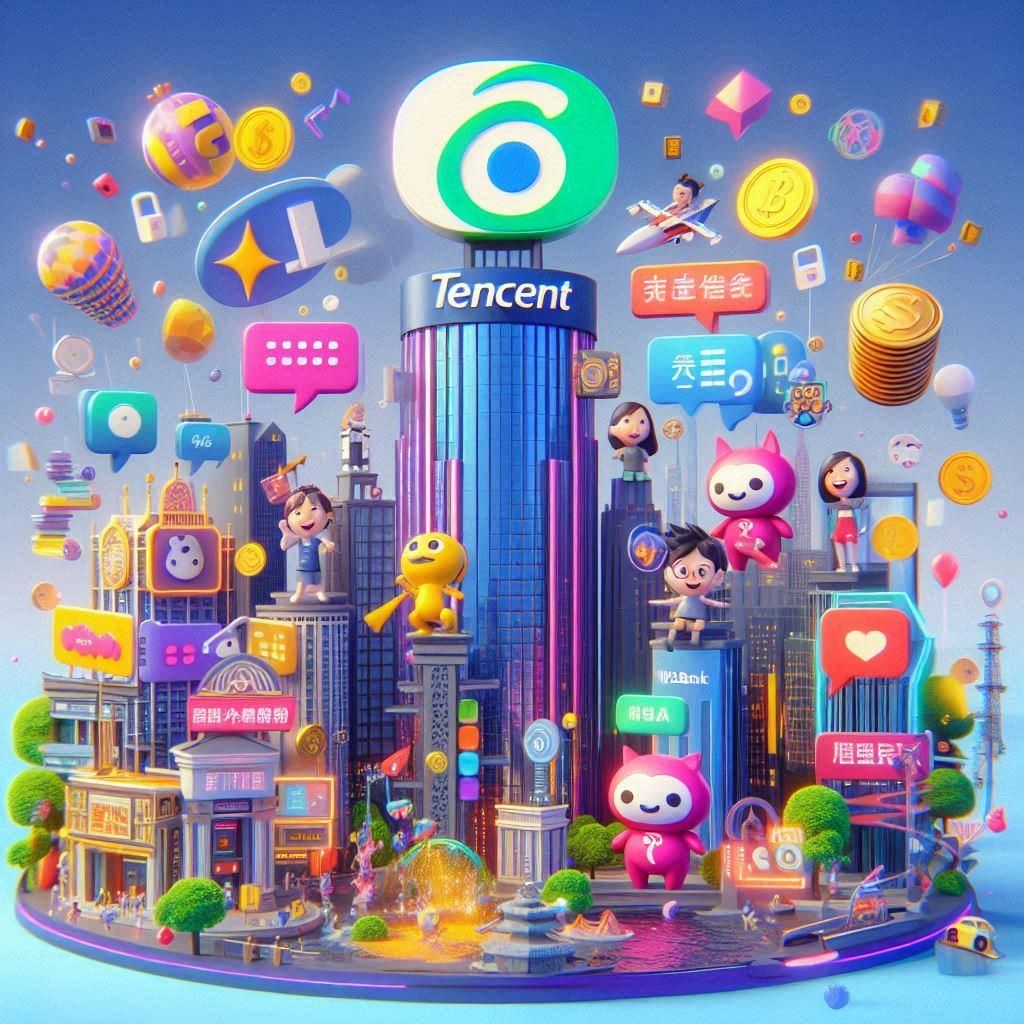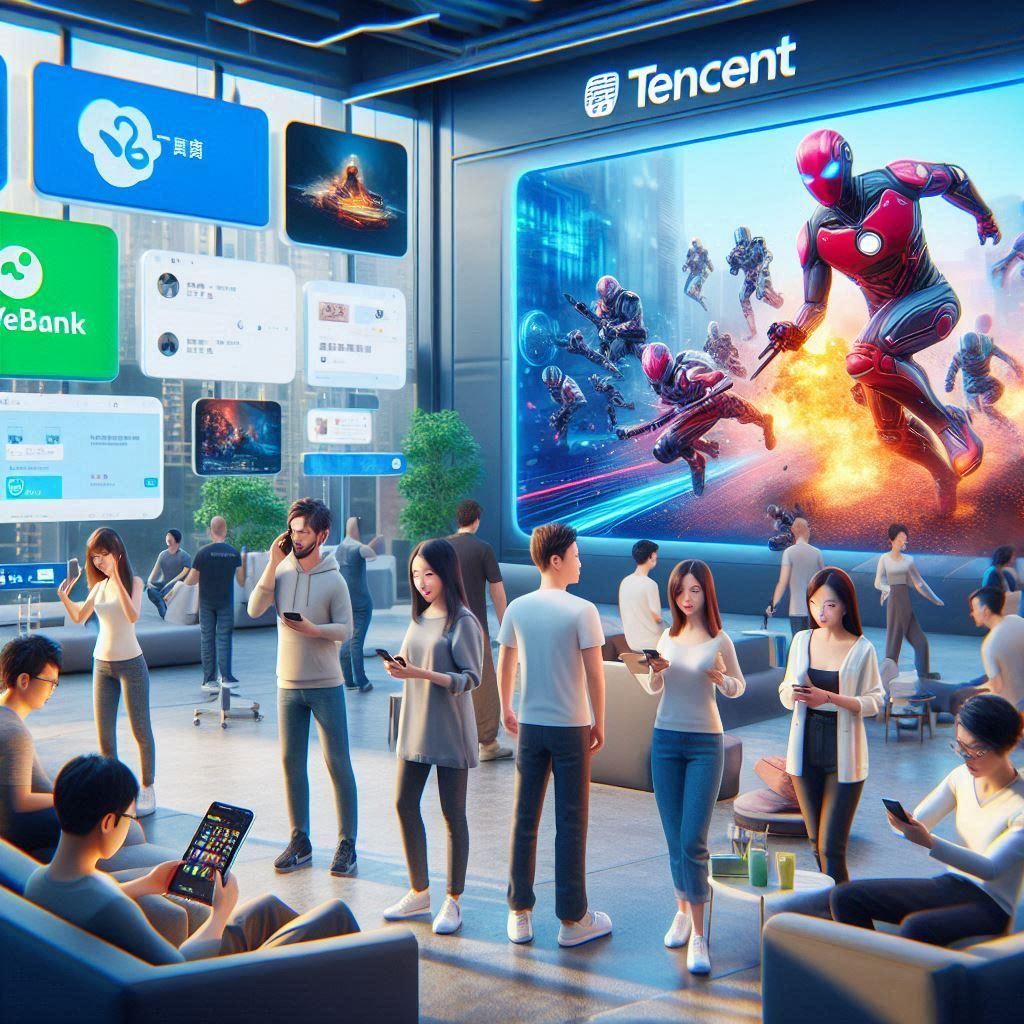Tencent Holdings Limited, one of China’s largest multinational corporations, is widely known for its involvement in AI, entertainment, and investment.
The company has its headquarters based in Shenzhen, China, and has become one of the largest multimedia corporations globally by revenue.
Notable among the numerous subsidiaries it possesses is Tencent Games, which forms part of the Tencent Interactive Entertainment Group and features PUBG Mobile. Tencent has gone through a journey filled with setbacks as well as triumphs.
Pony Ma’s Early Years
Pony Ma, one of the major founders of the company, was born in 1971. This was a time China was undergoing dramatic social and political changes, a few years before Mao Zedong died.
Right afterwards, Deng Xiaoping began opening up the country to international trade.
He moved from Hainan to Shenzhen in Guangdong province at age 13, a city that would eventually be called the “world’s hardware capital” and compared with Silicon Valley because of Deng’s new approach to China's economy.
When applying to college in 1989, during tense political times, other choices like Tsinghua University were left for Shenzhen University by him on account of his parents living nearby.
Although he had an initial fascination with astronomy, there was no such course at Shenzhen University, and therefore Ma took up computer engineering instead. Fast forward almost a decade and Ma was on the verge of founding one of the biggest Chinese companies in the world.

The early years of Tencent
Tencent was founded in 1998 in the Cayman Islands by Pony Ma (Ma Huateng), Zeng Liqing, Charles Chen, Xu Chenye, and Zhang Zhidong.
After graduation, Ma worked at China Motion Telecom Development, gaining insights into telecommunications, while Zhang worked at Shenzhen Data Telecommunications Bureau, focusing on network management and software development.
It launched its first product in 1999. Initially called OICQ, the messaging service was later rebranded as Tencent QQ.
Tencent made significant strides towards becoming a top service provider in China. In May 2000, they introduced “Mobile QQ,” which provided chat services, mobile games, mobile news, and special ringtones as well.
Being listed on the Hong Kong Stock Exchange was a major success for Tencent because it led to huge profits.
However, when this happened, there were challenges that came up, such as strict regulations placed by mobile operators who wanted to have a share of the increased profit margins realized.
In 2001, South African company Naspers acquired a major stake that boosted Tencent after it struggled with profitability for two years. Adverts and premium subscriptions for Tencent QQ generated most of the revenue for the company at that time.
In addition to this, by 2005, it had begun offering local cellular telecommunications and licensing its penguin logo for use on food items and clothes like virtual characters.

Tencent's subsequent expansion and success
Tencent's early online video games, including CrossFire and Dungeon Fighter Online, significantly boosted the company's revenue through licensing.
In 2011, Tencent unveiled Weixin, called WeChat beyond China’s borders, which accumulated over one billion active monthly users.
Starting from the year 2011, Tencent expanded its stream of earnings into video games, acquiring other significant gaming firms such as Riot Games (developer of League of Legends), Epic Games (Fortnite, Infinity Blade, and Unreal creator), Kingsoft Corporation, and Activision Blizzard (Call of Duty’s proprietor).
In 2015, Tencent launched WeBank, China’s online banking service. By doing so, it also joined forces with the NBA as the main sponsor for game broadcasts in China. In 2016, Tencent made headlines by buying Supercell, the developer of Clash of Clans, for $8 billion.
It was eventually valued at $500 billion, surpassing Alibaba, making it the biggest Chinese conglomerate listed on NYSE in terms of market capitalization before reaching $1 trillion in 2021.

Tencent’s global expansion and technological innovation
On October 23, 2014, Tencent provided $145 million to Koudai Gouwu for a stake of 10%, fueling its e-commerce vision. In November, Tencent bought the exclusive rights to distribute HBO content in China, which expanded its media territory.
On December 9th, Tencent and Temasek Holdings led a funding round of $700 million for the taxi app Didi Dache. Finally, on December 29th, China launched WeBank, an online-only bank with trials commencing on January 18th, marking their entry into digital banking.
Since 2015, Tencent has been expanding its internal operations quickly through a series of highly publicized acquisitions and alliances. The firm purchased Supercell in 2016, the creator of “Clash of Clans," which helped to further build up its gaming portfolio.
Additionally, Tencent also invested widely, both in start-ups and established tech firms across the globe, including Snap Inc., Snapchat’s parent company, and Spotify.
During this period, technological innovation became a key strategic thrust for Tencent. In order to fulfill this vision, huge investments were made by the company in artificial intelligence (AI), cloud computing, and big data.
Such moves as the creation of AI Lab by Tencent and the establishment of Youtu Lab only served to highlight their commitment to advancing AI research and development.
Besides boosting the make-up of existing products within the organization, these advancements have resulted in new opportunities for growth, particularly in such sectors as healthcare and finance, among others.
In early 2022, Tencent planned to acquire Black Shark but abandoned the deal due to regulatory issues. Tencent faced slow revenue growth in June 2022 and later divested from Meituan.
By December 2023, regulatory costs cut Tencent's market cap by $46 billion, but share buybacks and a 7% revenue rise in Q4 2023 showed recovery.
Tencent is one of the major publishers of video games for both smartphones and laptops worldwide. It emerges as the most commercially successful business in gaming, owning such well-liked subsidiaries as Miniclip, Supercell, Fatshark, Funcom, Grinding Gear Games, and Riot Games.
Apart from its dominance in the gaming industry, Tencent also holds significant shares in social media, angel investment, and venture capital. WeChat, Tencent QQ, and Tencent Music can be mentioned among the prominent investments that have been made.